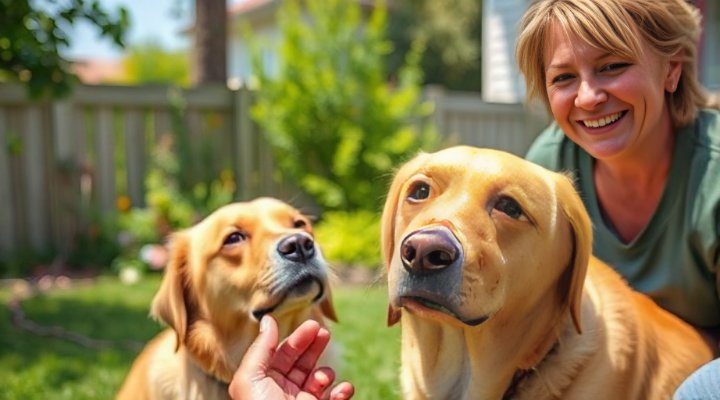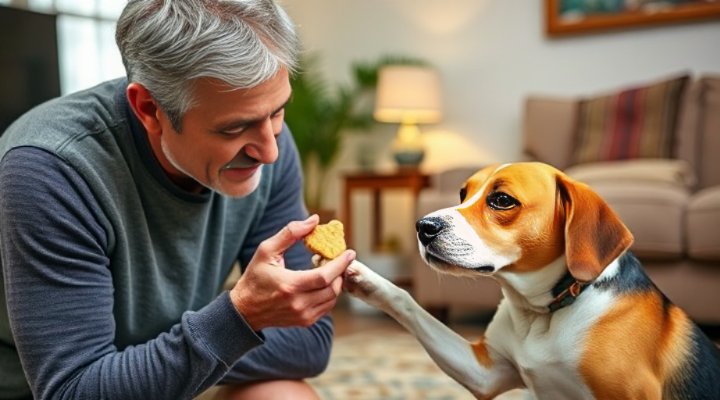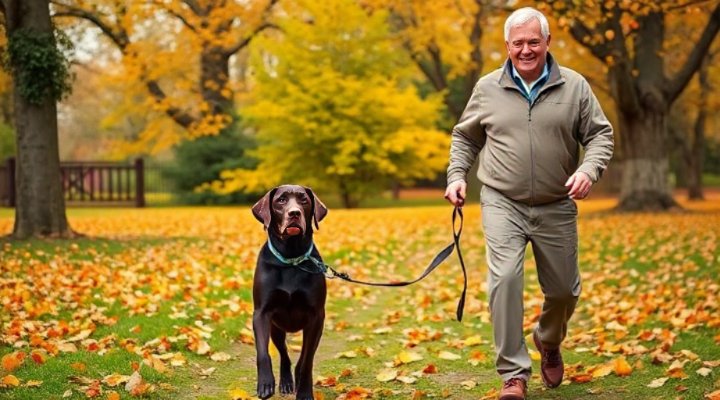Training an older dog might seem challenging, but with patience and the right techniques, your senior pup can learn new tricks and behaviors. This guide provides practical tips to help you overcome age barriers and strengthen your bond with your furry friend. Whether it’s basic commands or more advanced training, older dogs can thrive with the right approach.

Understanding the Challenges of Training Senior Dogs
Before diving into training methods, it’s important to recognize that older dogs may face certain physical and cognitive challenges. For instance, arthritis might make some positions uncomfortable, and diminished hearing or vision could affect how they respond to commands. However, this doesn’t mean training an older dog is impossible – it just requires some adjustments to your approach.
According to the American Veterinary Medical Association, cognitive function in dogs can be maintained and even improved through mental stimulation. That is to say, training isn’t just about obedience – it’s about keeping your dog’s mind active and engaged.

Effective Techniques for Training Older Dogs
1. Keep Training Sessions Short and Positive
Senior dogs may tire more easily, so it’s best to keep training sessions brief – 5 to 10 minutes at a time is ideal. Most importantly, always end on a positive note with a success that you can reward. If you’re working on training a rescue dog, this approach is especially valuable for building trust.
2. Use High-Value Rewards
As dogs age, their sense of smell and taste may diminish. Consequently, regular treats might not be as motivating. Try using extra-special rewards like small pieces of chicken, cheese, or other high-value treats your dog loves. For dogs with dietary restrictions, praise and petting can be just as effective.
3. Adapt to Physical Limitations
If your older dog has mobility issues, modify exercises to be more comfortable. For example, instead of asking for a full ‘sit’, you might reward any bending of the hind legs. Similarly, if you’re working on leash training, use a harness that doesn’t put pressure on sensitive areas.

Building on Existing Training
Many older dogs already know basic commands, so you can build on this foundation. Even if they’ve become a bit rusty, the neural pathways are still there – it’s just a matter of refreshing them. Start with commands they know well to build confidence before introducing new ones.
For example, if your dog used to respond well to hand signals but now has hearing loss, you might emphasize visual cues more. On the other hand, if vision is the issue, you could use more verbal cues and touch signals. Our article on training deaf dogs has some useful crossover techniques.
The Importance of Patience and Consistency
Training an older dog requires extra patience. They might take longer to learn new things, and that’s perfectly normal. The key is consistency – use the same commands and rewards each time, and practice regularly but not to the point of exhaustion.
Remember, the goal isn’t perfection but rather mental stimulation and strengthening your bond. As the American Kennel Club notes, training should always be a positive experience for both dog and owner.

Fun Activities for Senior Dogs
Beyond basic obedience, there are many enjoyable activities you can do with your older dog:
- Nose work games (hiding treats for them to find)
- Gentle agility adapted for seniors
- Learning new, simple tricks
- Socialization with other calm, older dogs
If you’re interested in structured activities, consider dog socialization classes specifically designed for senior dogs.
When to Seek Professional Help
If you’re struggling with training an older dog, don’t hesitate to seek help from a professional. A qualified dog trainer with experience in senior dogs can provide valuable guidance tailored to your dog’s specific needs and limitations.
Remember, every dog is unique, and what works for one may not work for another. The most important thing is to enjoy the process and celebrate every small victory with your faithful companion.
Related Keywords: senior dog training, older dog behavior, training aging dogs, mental stimulation for senior dogs, bonding with older dogs

